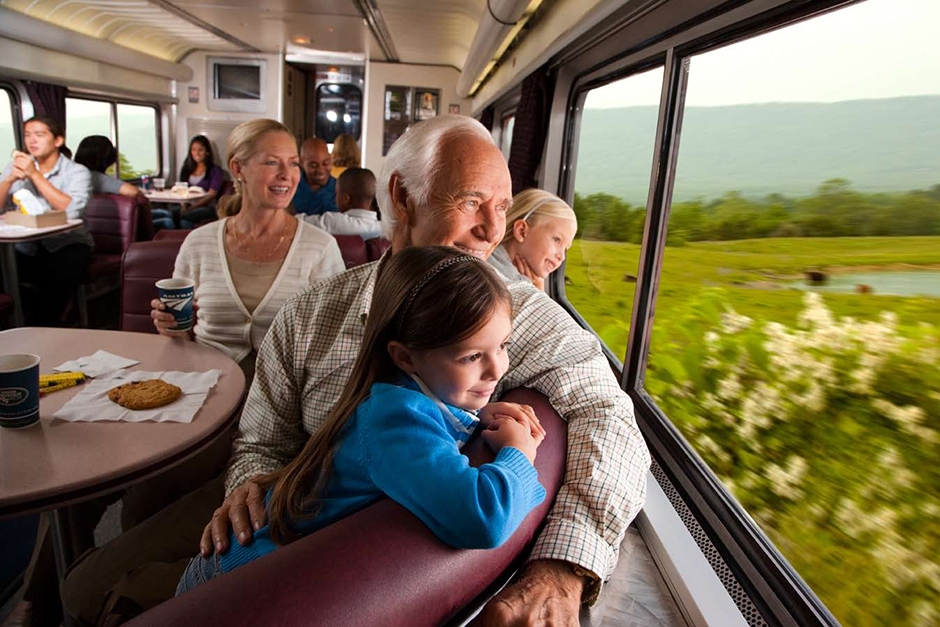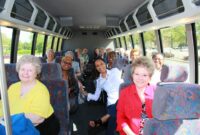Trips for senior adults represent a significant opportunity for exploration, relaxation, and connection. This guide delves into the multifaceted world of travel specifically designed for older adults, considering their unique needs and preferences. We will explore various trip types, addressing accessibility concerns, health and safety precautions, budgeting strategies, and the enriching social and cultural aspects of senior travel. The goal is to empower seniors to plan unforgettable journeys that cater to their individual needs and desires, fostering independence and enriching their lives.
From choosing the right destination and accommodation to understanding the financial implications and leveraging technology for a smoother experience, this comprehensive resource aims to provide practical advice and inspiration for senior travelers. We’ll examine different trip categories, suitable transportation options, and the importance of travel insurance, ensuring that every aspect of the journey is meticulously planned and thoroughly considered for a safe and fulfilling experience.
Budgeting and Financial Planning
Planning a trip requires careful consideration of finances to ensure a relaxing and enjoyable experience without unexpected financial burdens. A well-structured budget, coupled with suitable insurance and the pursuit of affordable options, can significantly enhance the overall value and peace of mind associated with senior travel.
Sample Budget Breakdown for a Senior-Friendly Trip
This example outlines a 7-day trip for two people to a moderately priced destination, such as a charming coastal town in the US. Adjust figures based on your chosen destination and travel style.
| Expense Category | Estimated Cost (USD) |
|---|---|
| Airfare (round trip for two) | $1400 |
| Accommodation (7 nights, mid-range hotel) | $1050 |
| Activities (excursions, entry fees, etc.) | $700 |
| Food and Dining (restaurants, groceries) | $700 |
| Transportation (local transport, taxis) | $200 |
| Incidentals (souvenirs, tips, etc.) | $250 |
| Total Estimated Cost | $4300 |
Travel Insurance Options for Senior Travelers
Choosing the right travel insurance is crucial for senior travelers, as health concerns are more likely. Policies often vary significantly in coverage and price. Consider these factors:
- Medical Coverage: Ensure the policy covers emergency medical expenses, including hospital stays, medical evacuations, and repatriation. Check the coverage limits and any pre-existing condition exclusions.
- Trip Cancellation/Interruption: This covers costs incurred if the trip is cancelled or interrupted due to unforeseen circumstances, such as illness or severe weather.
- Baggage Loss/Delay: This protects against the loss or delay of luggage and its contents.
- Emergency Assistance Services: Many policies offer 24/7 access to assistance services, providing help with medical emergencies, lost documents, and other travel-related issues.
Compare quotes from multiple insurers to find a policy that best suits your needs and budget. Consider policies specifically designed for seniors, which may offer broader coverage for age-related health concerns.
Finding Affordable Travel Deals and Discounts for Senior Citizens
Numerous resources can help seniors find cost-effective travel options.
- Senior Discounts: Many airlines, hotels, and attractions offer discounts for travelers aged 60 or older. Always inquire about senior discounts when booking.
- Travel Agencies Specializing in Senior Travel: These agencies often have access to exclusive deals and packages tailored to the needs and preferences of senior travelers.
- Off-Season Travel: Traveling during the off-season or shoulder seasons can significantly reduce costs for flights and accommodation.
- Consider Alternative Accommodation: Explore options like vacation rentals or guesthouses, which can be more affordable than hotels.
- Utilize Travel Websites and Comparison Tools: Use online travel agencies and comparison websites to find the best deals on flights, hotels, and other travel services.
Technological Tools and Resources for Senior Travelers
Embracing technology can significantly enhance the travel experience for senior adults, offering convenience, safety, and peace of mind. From pre-trip planning to navigating unfamiliar territories, a range of digital tools are available to simplify and enrich the journey. This section explores useful applications and websites designed to support senior travelers in their adventures.
Technology plays a crucial role in boosting the safety and independence of senior travelers. GPS tracking features in smartphones and dedicated apps allow loved ones to monitor their location, providing reassurance. Easy-to-use navigation systems can eliminate the stress of getting lost in unfamiliar surroundings. Furthermore, access to instant communication through mobile devices enables quick contact with family, friends, or emergency services if needed. This increased connectivity and location awareness fosters a sense of security and empowers seniors to travel more confidently.
Helpful Mobile Applications and Websites
Several mobile applications and websites are specifically designed to cater to the needs of senior travelers. These platforms offer features tailored to ease the planning and execution of trips, addressing potential challenges related to age and mobility. For instance, many travel booking sites offer user-friendly interfaces with large fonts and clear navigation, simplifying the process of finding and reserving flights, accommodations, and transportation. Other apps provide real-time translation services, assisting with communication in foreign countries. Furthermore, websites dedicated to senior travel often provide curated travel itineraries and resources specifically designed for older adults, such as accessible tours and accommodations.
Technological Tools Beneficial for Senior Travelers
The following list highlights five technological tools that can significantly improve the travel experience for senior adults.
- GPS Tracking Devices/Apps: These devices or smartphone apps allow family and friends to track the location of a senior traveler in real-time, offering peace of mind and enabling quick assistance if needed. For example, a GPS tracker could be placed in a senior’s luggage or worn as a personal device, providing constant location updates via a linked smartphone app. This reduces the anxiety associated with travel for both the traveler and their loved ones.
- Medication Management Apps: These apps help seniors manage their medications while traveling, providing reminders for dosages and tracking medication intake. Features like visual cues and reminders based on time zones can ensure that medications are taken correctly even across time differences, maintaining health and wellness throughout the journey. This is particularly helpful for individuals with complex medication schedules.
- Translation Apps: For international travel, translation apps can bridge communication gaps by providing instant translations of text and speech. Apps like Google Translate offer both text and voice translation, facilitating communication with locals and overcoming language barriers. This makes it easier for senior travelers to navigate unfamiliar environments and interact with people from different cultures.
- Accessible Navigation Apps: Apps like Google Maps offer features that cater to users with mobility challenges, such as displaying accessible routes and identifying nearby wheelchair-accessible facilities. These features help seniors plan their journeys and avoid potential obstacles, making their travel more comfortable and enjoyable. The ability to choose routes that avoid stairs or steep inclines can be particularly beneficial.
- Emergency Alert Systems: Personal emergency response systems (PERS) allow seniors to quickly summon help in case of an accident or emergency. These systems often involve a wearable device or pendant that can be activated to contact emergency services or designated contacts. This provides an extra layer of safety and security for senior travelers, especially when traveling alone.
Final Conclusion
Planning a trip as a senior adult doesn’t have to be daunting. By carefully considering the factors discussed—from accessibility and health considerations to budgeting and technological resources—seniors can confidently embark on enriching travel experiences. Remember that travel is an opportunity for personal growth, social interaction, and the creation of lasting memories. This guide serves as a starting point, encouraging you to explore the possibilities and tailor your journey to reflect your unique interests and capabilities. Embrace the adventure and enjoy the journey!




